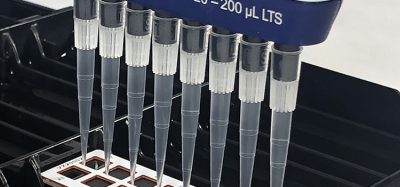Lilly and Incyte announce positive top-line results from Phase 3 trial of baricitinib in moderate to severe rheumatoid arthritis
Posted: 9 December 2014 | European Pharmaceutical Review
Eli Lilly and Company (NYSE: LLY) and Incyte Corporation (NASDAQ: INCY) today announce that the Phase 3 RA-BEACON study of the investigational medicine baricitinib met its primary endpoint of improved ACR20 response compared to placebo after 12 weeks of treatment.
The study included patients with moderately-to-severely active rheumatoid arthritis (RA) who previously failed one or more tumor necrosis factor (TNF) inhibitors and who were taking stable doses of conventional disease-modifying anti-rheumatic drug (cDMARD) therapy. The companies will share results of several ongoing Phase 3 studies in various disclosures in 2015.
“People with rheumatoid arthritis who have had an inadequate response to TNF inhibitors are generally considered to be the least responsive to subsequent treatments,” said David Ricks, Lilly senior vice president, and president, Lilly Bio-Medicines. “These results give us confidence in the potential for baricitinib.”
“We are very pleased by these results,” said Rich Levy, M.D., chief drug development and medical officer, Incyte Corporation. “Over the next 12 months we look forward to seeing the data from additional Phase 3 studies of baricitinib in rheumatoid arthritis, including patients who have had an inadequate response to conventional DMARDs and in those with earlier stage disease.”
The RA-BEACON study enrolled 527 patients who had previously failed at least one anti-TNF therapy, and included a high percentage who had also received prior treatment with one orseveral non-anti-TNF biologic agents. Patients received either 1 of 2 different doses of once daily baricitinib or placebo in addition to their conventional disease-modifying anti-rheumatic drug therapy (cDMARDs).
The incidence of serious adverse events with baricitinib treatment, including serious infections, was similar to placebo. There were no opportunistic infections or gastrointestinal perforations in the study. A higher incidence of treatment-emergent adverse events was observed with baricitinib treatment compared to placebo. The most common adverse events observed with baricitinib were headache, upper respiratory tract infection and nasopharyngitis. Discontinuation rates due to adverse events were similar between treatment groups. A large majority of patients completing this 6-month trial opted to participate in a long-term extension study.
Detailed data from the RA-BEACON study will be presented at scientific meetings in 2015. Lilly and Incyte are evaluating the safety and efficacy of baricitinib in an extensive Phase 3 program with a total enrollment of over 3,000 people with rheumatoid arthritis.








